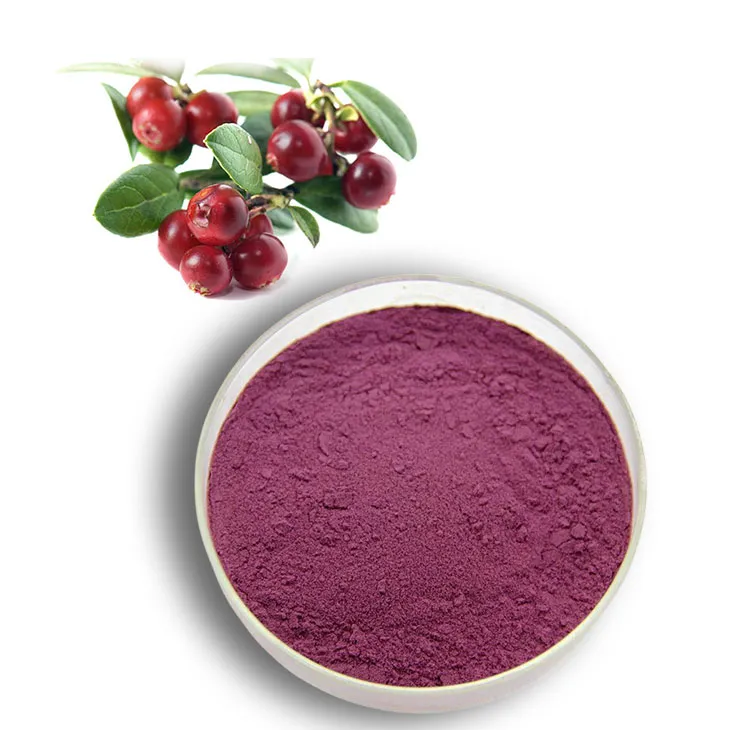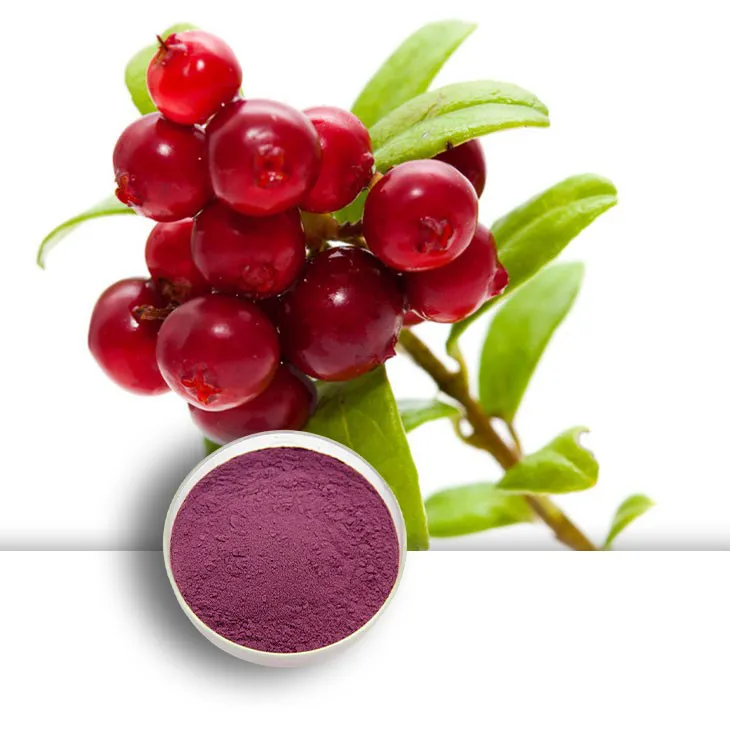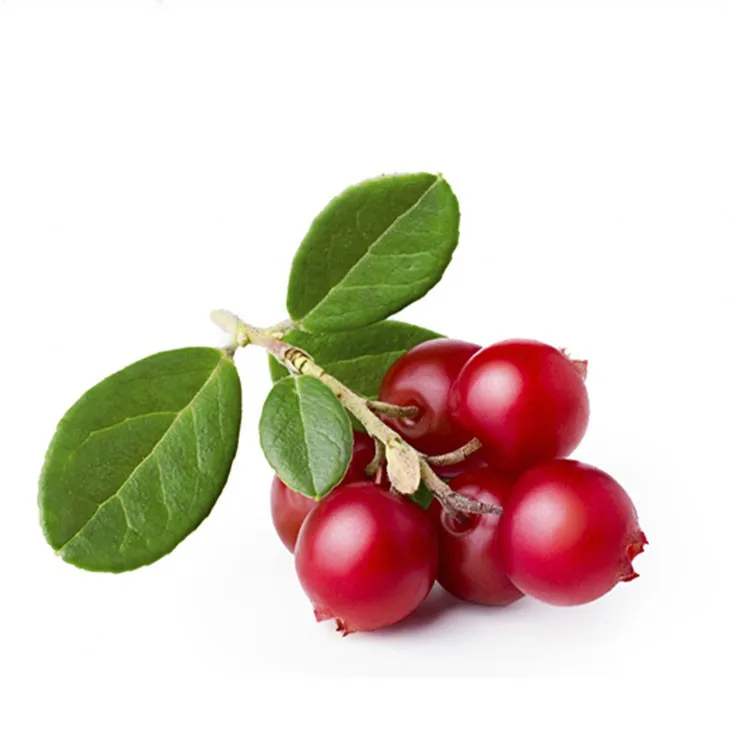- 0086-571-85302990
- sales@greenskybio.com
Best Answers to 7 Key Questions about Bilberry Extract.
2024-12-15

1. What is Bilberry Extract?
Bilberry Extract is derived from the bilberry plant, scientifically known as Vaccinium myrtillus. This small, dark - blue berry is native to Europe, Asia, and North America. The extract is rich in various bioactive compounds, including anthocyanins, flavonoids, and phenolic acids. These compounds are responsible for many of the potential health benefits associated with Bilberry Extract.

2. Where does Bilberry Come From?
Bilberries are mainly found in the wild across different regions.
- In Europe, they are commonly found in the forests and mountains of countries such as Finland, Sweden, Norway, and the mountainous regions of central and southern Europe.
- In Asia, they can be found in parts of Russia and some mountainous areas in China.
- In North America, they are native to certain areas with similar cool - climate habitats.

3. What are the Health Benefits of Bilberry Extract?
Bilberry extract has been associated with several potential health benefits:
- Eye Health:
- Anthocyanins in bilberry extract may help improve vision. They are thought to enhance the function of the retina, which is crucial for clear vision. Some studies suggest that it can be beneficial for people with conditions like macular degeneration and cataracts.
- It may also help relieve eye strain, especially for those who spend long hours in front of digital screens.
- Antioxidant Activity:
- The flavonoids and anthocyanins in bilberry extract act as powerful antioxidants. They can neutralize free radicals in the body, which are unstable molecules that can cause damage to cells and contribute to various diseases such as cancer, heart disease, and neurodegenerative disorders.
- Improved Circulation:
- Bilberry extract may help improve blood circulation. By strengthening the walls of blood vessels, it can enhance the flow of blood throughout the body. This can be beneficial for people with circulatory problems, such as varicose veins and poor blood flow in the extremities.
- Anti - Inflammatory Effects:
- It has shown anti - inflammatory properties. This can be helpful in reducing inflammation in the body, which is associated with many chronic diseases. For example, it may help ease joint pain in conditions like arthritis.

4. What is the Proper Dosage of Bilberry Extract?
The proper dosage of bilberry extract can vary depending on several factors, such as the individual's age, health condition, and the purpose of taking the supplement.
- For general health maintenance, a typical dosage might be around 160 - 320 mg per day of a standardized bilberry extract. This extract should contain a certain percentage of anthocyanins, usually around 25 - 36%.
- If using bilberry extract for specific health concerns like eye health, higher dosages may be recommended under the guidance of a healthcare provider. However, it is important not to exceed the recommended upper limits, as excessive intake of bilberry extract may lead to potential side effects.
5. Are there any Side Effects of Bilberry Extract?
Bilberry extract is generally considered safe for most people when taken in appropriate doses. However, some potential side effects may occur:
- Gastrointestinal Issues: Some people may experience mild stomach upset, such as nausea, diarrhea, or indigestion. This is more likely to happen if the dosage is too high or if the individual has a sensitive stomach.
- Blood - Sugar and Blood - Pressure Effects: In some cases, bilberry extract may affect blood - sugar levels or blood pressure. People with diabetes or hypertension should be especially cautious and monitor their levels closely when starting to take bilberry extract.
- Allergic Reactions: Although rare, some individuals may be allergic to bilberry extract. Symptoms of an allergic reaction can include skin rashes, itching, swelling, or difficulty breathing. If any of these symptoms occur, immediate medical attention should be sought.
6. How to Choose a High - Quality Bilberry Extract?
When choosing a bilberry extract product, there are several factors to consider:
- Standardization: Look for a product that is standardized to a certain percentage of anthocyanins. A higher percentage of anthocyanins generally indicates a more potent product. For example, a product standardized to 36% anthocyanins is likely to be of higher quality than one with a lower percentage.
- Source: Consider the source of the bilberries used in the extract. Products made from wild - harvested bilberries may have different characteristics compared to those from cultivated sources. Ideally, choose a product that discloses the source of its bilberries.
- Manufacturer Reputation: Research the reputation of the manufacturer. A well - known and reliable manufacturer is more likely to produce a high - quality bilberry extract. Look for companies that follow good manufacturing practices (GMP) and have positive customer reviews.
- Additional Ingredients: Check the label for any additional ingredients. Some products may contain fillers, preservatives, or other substances that you may want to avoid. Choose a product with minimal additional ingredients if possible.
7. Can Bilberry Extract be Used in Combination with Other Supplements or Medications?
Bilberry extract may interact with other supplements or medications.
- Anticoagulants and Anti - Platelet Drugs: Since bilberry extract may have an effect on blood clotting, it could potentially interact with anticoagulant drugs (such as warfarin) or anti - platelet drugs. Combining bilberry extract with these medications may increase the risk of bleeding. If you are taking such medications, it is essential to consult your doctor before taking bilberry extract.
- Diabetes Medications: As mentioned earlier, bilberry extract may affect blood - sugar levels. If you are taking diabetes medications, it is crucial to monitor your blood - sugar levels closely when starting to take bilberry extract. Your doctor may need to adjust your diabetes medication dosage accordingly.
- Other Supplements: When considering combining bilberry extract with other supplements, such as antioxidant supplements or herbal remedies, it is also advisable to consult a healthcare provider. Some combinations may have additive or synergistic effects, while others may lead to unwanted interactions.
FAQ:
What is the origin of bilberry extract?
Bilberry is native to Europe, Asia, and North America. Bilberry extract is typically derived from the berries of the bilberry plant (Vaccinium myrtillus). These berries are rich in various bioactive compounds, and through extraction processes, the valuable components are concentrated to form bilberry extract.
What are the main health benefits of bilberry extract?
Bilberry extract is known for several health benefits. It is rich in antioxidants, such as anthocyanins, which can help protect cells from oxidative damage. It may also improve vision, especially in relation to night vision, as it can enhance the function of the retina. Additionally, it has potential anti - inflammatory properties, which could be beneficial for reducing inflammation in the body. Some studies suggest it may also play a role in improving blood circulation and managing blood sugar levels.
How should the proper dosage of bilberry extract be determined?
The proper dosage of bilberry extract can vary depending on several factors, including the individual's age, health condition, and the specific purpose of taking it. In general, for general health maintenance, a typical dosage might range from 80 - 160 mg per day. However, for specific health issues, it is advisable to consult a healthcare professional. They can take into account your overall health, medications you may be taking, and other relevant factors to recommend an appropriate dosage.
What are the possible side effects of bilberry extract?
While bilberry extract is generally considered safe for most people, some potential side effects may occur. In some cases, it may cause mild digestive issues such as upset stomach, diarrhea, or nausea. There is also a possibility of allergic reactions, especially in individuals who are allergic to other plants in the Vaccinium family. Additionally, bilberry extract may interact with certain medications, such as blood - thinning drugs, so it's important to inform your doctor if you are taking it while on other medications.
Is bilberry extract suitable for everyone?
Bilberry extract is not suitable for everyone. Pregnant and breastfeeding women should avoid it as there is not enough research to determine its safety during these periods. People with bleeding disorders or those taking blood - thinning medications should also use it with caution due to its potential to affect blood clotting. And as mentioned before, those with allergies to Vaccinium plants may experience allergic reactions.
Related literature
- The Health Benefits of Bilberry Extract: A Review"
- "Bilberry Extract: Composition, Pharmacological Activity, and Therapeutic Applications"
- "Anthocyanins in Bilberry Extract: Their Role in Health and Disease"
- ▶ Hesperidin
- ▶ citrus bioflavonoids
- ▶ plant extract
- ▶ lycopene
- ▶ Diosmin
- ▶ Grape seed extract
- ▶ Sea buckthorn Juice Powder
- ▶ Beetroot powder
- ▶ Hops Extract
- ▶ Artichoke Extract
- ▶ Reishi mushroom extract
- ▶ Astaxanthin
- ▶ Green Tea Extract
- ▶ Curcumin Extract
- ▶ Horse Chestnut Extract
- ▶ Other Problems
- ▶ Boswellia Serrata Extract
- ▶ Resveratrol Extract
- ▶ Marigold Extract
- ▶ Grape Leaf Extract
- ▶ blog3
- ▶ blog4
- ▶ blog5
-
Pure 85% Tomentil Extract.
2024-12-15
-
Feverfew Extract
2024-12-15
-
Pine bark Extract Powder
2024-12-15
-
Carrageenan Extract Powder
2024-12-15
-
Tongkat Ali Extract
2024-12-15
-
Yam Extract
2024-12-15
-
Kupilu Extract
2024-12-15
-
Diosmin
2024-12-15
-
Natural grape seed extract
2024-12-15
-
Coconut Water Powder
2024-12-15
-
Sea buckthorn oil
2024-12-15





















